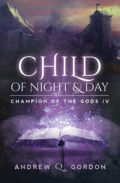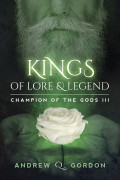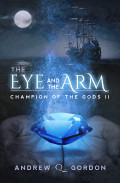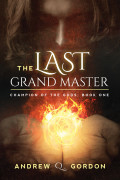Guest Author – Augusta Li
Gus is visiting today to talk a bit about her new book – Iron and Ether – which is Book Three of the Blessed Epoch. Book one’s cover featured Yarrow – the mage, Two had Duncan the soldier and now comes Three , with Sasha – the assassin. [Who is my personal favorite from the series] Gus is going to talk about the role technology and manufacturing play in world building for fantasy novels/series. And when she’s done, there is lengthy excerpt to get you excited for the release next week.
Guest Author: Augusta Li.
Technology and Manufacturing in High Fantasy
 Technology and manufacturing might not be the first things that come to mind when discussing world-building in a series of High Fantasy novels, especially novels set in a medieval-like period. I have often discussed the lack of technological achievement in the genre with like-minded friends (read: fellow nerds). Often, even in epic sagas spanning decades or longer, there are no mentions of advances in things like weaponry or medicine. To me, this has always felt like a bit of an oversight. Even alongside more glamorous things like magic and knights in shining armor, I believe human ingenuity and the quest for improvement would continue.
Technology and manufacturing might not be the first things that come to mind when discussing world-building in a series of High Fantasy novels, especially novels set in a medieval-like period. I have often discussed the lack of technological achievement in the genre with like-minded friends (read: fellow nerds). Often, even in epic sagas spanning decades or longer, there are no mentions of advances in things like weaponry or medicine. To me, this has always felt like a bit of an oversight. Even alongside more glamorous things like magic and knights in shining armor, I believe human ingenuity and the quest for improvement would continue.
Medieval humans had technology, though they didn’t use that term, of course. Crossbows and catapults are examples of the military machinery they possessed—and worked to improve. As weapons became more sophisticated, fortresses also evolved to resist them. Armor appeared to counteract new and deadlier weapons, and when those weapons improved and changed, armor had to adapt. The cycle continued and continues to this day, and I think, at least to a degree, an epic fantasy spanning many years should reflect advances in the technology of the time, just because it’s realistic. People being attacked by certain types of weapons (or magic) would strive to come up with ways to defend against them. And people can be quite creative.
War often facilitates huge leaps in technological achievement. I’m not making any moral judgment on this, but one doesn’t have to look too hard at history to see it’s true, and has always been true. Both attackers and defenders are always seeking an advantage, and when they discover one, the other side will either improve on it or conceive of a way to cancel it out. Often victory goes to the side with the best tech. In my Blessed Epoch series, despite the presence of knights and mages, it was important to me to reflect advances in warfare technology. Important, because I feel that’s what people would really do, what history has shown they do. As much as I adore writing magical battles and describing crossbows and halberds being used in combat, I knew I couldn’t let the technology stagnate. My characters are fighting for their lives and their kingdom, which means they’d be looking for something, anything, to tip the odds in their favor.
The ruling class in my series realizes quickly in the third book, Iron and Ether, that they are suffering from the lack of a nautical force. They find themselves at a point in their history where seafaring and defending their coastal borders are becoming more and more critical. Fast, sturdy ships are essential to both trade and defense. Despite the expense, the monarchy sets about establishing a royal fleet. They draw on ship-building techniques from various sources, and the presence of the fleet begins to evolve their civilization from a land-bound one to one with a greater freedom to explore. As human history has shown, the implications for a society capable of long sea voyages is huge. Of course, their enemies are also striving to improve their ships and develop a seafaring force.
Explosives and rudimentary incendiary devices become known for the first time in Iron and Ether, and they are a huge factor in many of the battles. This technology is initially acquired from a hitherto unknown foreign culture, but one of my more clever characters (I bet it isn’t who you think) is quick to realize what they need aren’t the weapons themselves, but the knowledge to make them. And when they have that knowledge, they set out to make the weapons and their delivery system even deadlier.
I didn’t overlook magic, and my magic-users also recognize the need to bring their craft to a higher level by working together to formulate more devastating spells, as well as learning to defend against enemy sorcery. Poisons, my world’s version of chemical weapons, I suppose, aren’t neglected either, as those who make them strive to improve the formulae. As history has shown, necessity is often the mother of invention, and this is very much what happens for the characters in Iron and Ether. To survive, they must adapt and evolve their weapons, nautical force, magic, poisons, and more. They make great strides in all these things, with implications that are yet to be realized. As we all know, sometimes knowledge can be a dangerous thing, but once the box has been opened and the demons released, it’s impossible to force them back inside.
What do you think about improved technology in a High Fantasy series? Is it an interesting bit of world-building, or something you don’t miss when it’s absent? What about manufacturing? After all, gorgeous custom swords made by a master artisan are lovely, but what to do when a ruler has to arm a few thousand new recruits? Do you enjoy reading about how things function and evolve if it doesn’t drag the plot, or would you rather skip over it? Be honest. You won’t hurt my feelings.
Comment for a chance to win a free ebook copy of Iron and Ether. You can comment on this post, or on anything you like or hate about the series so far. I really like the feedback, and don’t worry about offending me.
Iron And Ether
Book Three of The Blessed Epoch
Blurb:
Blurb:
 Sasha was born to, and has always defined himself by, the secret assassin’s Order of the Crimson Scythe. He chose the love of Yarrow L’Estrella and Duncan Purefroy over his duty to his clan, forfeiting his last mission and allowing Prince Garith to live. Now, the order—previously Sasha’s family—has branded him traitor. He’s marked, and that means the brethren of the Crimson Scythe won’t stop until Sasha is dead.
Sasha was born to, and has always defined himself by, the secret assassin’s Order of the Crimson Scythe. He chose the love of Yarrow L’Estrella and Duncan Purefroy over his duty to his clan, forfeiting his last mission and allowing Prince Garith to live. Now, the order—previously Sasha’s family—has branded him traitor. He’s marked, and that means the brethren of the Crimson Scythe won’t stop until Sasha is dead.
Garith’s twin kingdoms balance on the brink of war and all three men have reasons to help the King, whether loyalty, duty, or the interests of their own lands. Still, Yarrow and Duncan are willing to seek out and destroy the assassins’ order to keep Sasha safe. But Sasha isn’t sure that’s what he wants. None want to admit their energy would be better spent helping Garith keep the kingdom united, or in his war against foreign invaders. All plans and assumptions shatter when it becomes clear that the real warmonger isn’t a foreigner, but someone who lives in their midst. Their world teeters on the precipice of change, and Sasha, Duncan, and Yarrow can only hope the links they’ve forged will hold if Garith’s kingdom is torn apart.
Pre-Order Link:
Iron and Ether, by Augusta Li.
Excerpt:
Prologue
The Dark and Beautiful One rose slowly from his expansive, scarlet, velvet nest, slowly disentangling himself from the languid limbs and strands of silken hair covering his body until he could push himself to his hands and knees and crawl slowly across the field of sumptuous cushions and interlocked flesh. Reverent hands caressed and clung to Thalil as he wove through the maze of arms, legs, adoring faces, and eager mouths, but he brushed them off like cobwebs until he reached the edge of his bed and swung his legs over the side. Moans and laments followed him as he crossed the warm, smooth floor made of eons of bones crushed, compacted, and worn smooth as ivory beneath his bare soles and those of his thousands of lovers and thralls.
Innumerable flames burned within crimson glass lanterns as Thalil made his way slowly across his hall. The lanterns hung from the vaulted ceilings and lined the shining black walls, outnumbering the stars. Images of him in marble, ebony, silver, and gold stared back as he sauntered toward the central fountain, but none, he knew, were as beautiful as the original. He had yet to find an artist with the skill to capture him, and still enjoyed looking at his reflection in his pool best of all.
The Thirteen who called themselves goddesses had prepared a spare and cold realm for those they felt unworthy or wicked—the Cast-Down—an Abode of Shades devoid of pleasure and sensation. Thalil did not reside within it; no, this demesne was of his own making, and his power guaranteed the sisters could neither enter it nor take it from him.
He reached the central chamber of his Crimson Palace and perched delicately on the edge of the great pool at the center, smiling at his image, mirrored back in the thick, rubicund liquid. Because of his mortal children, the blood flowed in an endless supply, always fresh, its ferrous scent robust in the sultry air, and the number of souls wailing outside his fortress walls increased almost by the minute, giving him the power to thumb his nose at the thirteen so-called deities. Thalil rippled the surface of the tarn with his fingertips as he sank down on one elbow to peer into its depths.
Thalil took a moment to watch his children, the brethren of the Crimson Scythe, at work destroying life from the shadows, from the periphery of everything good and wholesome. He smiled as they brought him longer life and greater strength with every throat they slit, and he spent a tiny spark of his might to protect them and increase the fear they inspired as they killed. Then, to entertain himself, he turned his attention to other events occurring in the mortal realm.
On the eastern edge of what the mortals now called Gaeltheon, at the feet of the Lapir Mountains, a small expedition of people chipped into the ancient stone and ice with picks and hand-powered drills. Thalil leaned forward to watch them work, his perfect lips twitching with interest.
The small party had been laboring for nearly a year: their wind-battered tents barely stood beneath the thick layers of rime on the canvas. Their leader, a stooped, elderly fellow called Torkan Mellinger, continued digging and scraping long after his disciples had retired for the night. Though frail of body, passion burned and bloomed around Mellinger like a bonfire, the bright light clear even from afar. Thalil leaned closer, thinking he might like the old explorer’s soul to add to his menagerie, but not yet, not before he discovered what made Mellinger laugh aloud and scrub tears from his wrinkled eyes.
Mellinger lifted a slab of rock with his gloved hands, revealing a small alcove preserved through the centuries. Slowly, with appropriate veneration, he began to lift the objects he found inside the cupboard-sized space, exposing them to the wind and stars for the first time in thousands of years. Thalil recognized things from his father’s reign, though most of them held little value: a dented golden goblet, a few clouded gems, a dinner fork adorned with jewels, and the brass pegs from a wooden instrument long ago disintegrated. The elderly scholar seemed most intrigued by the few inches of a carved column supporting the forgotten niche, and abandoned his tools to scrape the dust from around it with his hands. As he scooped, Mellinger uncovered a small tablet and brushed it off on his worn sleeve. He blew across it to clear the fine debris from the carved words and brought it near his lantern to read.
Thalil listened with interest to the scholar’s whispered words. He doubted many mortals would have been able to decipher the ancient language.
“Long before the arrogance of Fane destroyed the world, the Thirteen Sisters faced an even greater threat on behalf of all humanity….” A deep gouge marred the smooth stone, stealing the words that had been written there. Mellinger skipped over that section and continued. “Fane taught his thirteen disciples the most powerful spell ever wielded by a mortal creature. He taught them the enchantment and sent them forth to purge our world of sin. And the goddesses hunted and destroyed a vile race of demons, older even than the bones of the world. The Thirteen Holy Sisters stripped these creatures of their power, though their essences remain in the shadows, in the most hidden places. Praise to the goddesses. Praise to they who risked themselves to shield mankind from such a vile threat.” The old man squinted to examine the illustrations of the vanquished creatures, winged, horned beings larger and more perfect than mortal men, and then continued to read of the so-called goddesses’ triumphs against them. Finally, Mellinger whispered, “The power and black evil of these ancient threats remains. Be steadfast in faith to the Thirteen. Without them, the evil will overtake us. Only the goddesses hold these abominations at bay. Be always steadfast in faith.”
The old man wrapped his precious find in a few strips of old cloth and stumbled to his tent, where he slept with the tablet close to his heart.
Thalil considered.
The mortals had no knowledge of the creatures Fane, his father, had feared so profoundly. They also had no idea Fane had instructed those they knew as goddesses in magic; without his tutelage, the thirteen regarded as divine would have been mediocre mages at best, left out of history, forgotten. Would the knowledge of the old race’s existence cast aspersions on his detested mother and her foul sisters, or would it increase the dependence the mortals felt? Should he send one of his children to put an end to Mellinger before his discovery reached the light? It would be an easy task for a Crimson Scythe, barely worthy of one of Thalil’s assassins. Or should he let the discovery stir doubt, possibly weaken the foundations of faith the thirteen whores rested upon so comfortably? A new and unknown chapter in the mythology of the Thirteen would certainly be greeted with great interest by the mortals. How would they react to the idea of Fane instructing them? If Thalil knew anything of their nature, and after so many thousand years he felt sure he did, the mortals would fight over the implications of Mellinger’s discovery. It could lead to chaos, to rifts, or it could bind the faithful even tighter to their foolish and misguided beliefs. For all his power, Thalil could not divine the future, so he chose to let Mellinger live and bring his revelation to others. He swiped his palm over the roiling pool until another vision emerged.
Thalil saw a sailor, a good-looking, tall, and muscular man called Bartoum Astir. The Dark and Beautiful One easily discerned this man held no exemplary cleverness or skill, but Thalil saw threads of destiny wrapped loosely around the seaman’s thick limbs, and he couldn’t help but wonder why. He watched as the sailor set foot on the parched shores beyond the mountains. Captain Bartoum Astir had been here before, many times, after discovering the riches these lands held in the form of brightly dyed cloth and gems, as well as powders that enhanced the blandest of foods and kept them from spoiling, but today he’d come for something he felt infinitely more precious. Bartoum made his way from the quayside to the center of the coastal city, to the brothel he’d visited on his first foray to these distant shores. Thalil rolled his eyes as he watched; the dank creases of woman-flesh held so much influence over the men who craved it. He had never understood that, though he understood about lust.
Looking over his shoulder, Thalil surveyed the young men either resting or making love on his large bed and chose one to keep him company: a lithe, bronzed, young creature with wheat-gold waves of hair. He met the gaze of his former assassin, and the young man left the others and crouched behind the Dark and Beautiful One, kissing the soles of Thalil’s feet and caressing the backs of his calves. As the young man’s warm, damp lips moved up the back of Thalil’s thigh, Thalil returned his attention to the pool.
Bartoum, smiling, went to the brothel’s madam and offered her a pouch of gold. After trading heavily between Selindria, Gaeltheon, and this newly discovered kingdom, he’d finally managed to save enough. The bent and withered madam took the sea captain’s coin and returned with a small, dark-skinned woman. Like all of her countrymen and kin, she kept her head shaved to the skin, and a bright-red beaded scarf covered her head. She wore a matching gown, sleeveless, to expose slim arms covered in swirling scars. Similar, deep marking adorned her face and chest, and several gold rings dangled from her ears. A wide line of kohl extended across her eyes like a mask. With a giggle, the whore threw her arms around Captain Bartoum Astir’s neck, and he lifted her off her feet and twirled her around. With a few broken words, Bartoum explained that as soon as they returned to Selindria, they would find a priestess and be properly married.
Thalil couldn’t tell how much, if any, the girl understood. She seemed happy enough to be leaving the brothel, though. He continued to watch as Bartoum returned to the quayside and put his fiancée aboard his ship. Then he went to trade for the richly dyed thin cloth the noble ladies of Selindria and Gaeltheon so adored and would pay so much to have for their gowns. He bartered common Selindrian things like harrow-wolf furs and twirlhorn bone for sacks of gems and tiny, perfectly made glass beads. Spice, so common to the foreign savages, brought huge sums in Bartoum’s home ports, and he and his crew loaded crate after crate of the various roots, dried flowers, and ground minerals onto their ship. Unbeknownst to the sailors, some of the small red lizards common to the area also found their way aboard and curled in the cool shadows below deck. Back home, Captain Bartoum Astir eagerly told a man from his crew, they would make such a profit they’d soon all have fine homes and wives.
“Look there,” Bartoum said to his crewman, pointing out over the bay at the many Selindrian ships. “The window to become wealthy by trading with these barbarians is closing quickly. Many sailors know of this place and its riches now. They’ll flood the market and drive down the prices of these goods. We must make our gold before that happens, and if we’re smart, we’ll put away enough to sustain us for the rest of our lives.”
“The Emiri raiders have also learned of the riches carried back from this place,” a dark-haired sailor with a thick, knotted beard remarked. “Very few ships make it to market with their holds full anymore. Some of the Sea Folk even dare come here, I’ve heard.”
Bartoum nodded. Not far from where they stood, the native people of what the Selindrians referred to as Johmatra worked hard constructing ships of their own, based on Selindrian, Gaeltheonic, and even Emiri design. “These savages have been very keen to acquire maps and charts and have paid well for them. I wonder how long it will be before they build seaworthy vessels and make it to our shores. I wonder what will happen then.”
Thalil wondered as well. The people of Johmatra, which was actually a loosely allied collection of nearly a hundred city-states, didn’t worship the thirteen goddesses, kept the Emiri as slaves, and slaughtered all common-born mages, who they believed had no right to use up the magic that belonged exclusively to the nobility. All power fell to those who could supposedly trace their lineage to Fane, Thalil’s father. Centuries of inbreeding had left these potentates horribly deformed, though many possessed strong sorcery. Thalil didn’t think the two cultures would find much in common and longed to see what would occur when they inevitably clashed. Surely his children could help to turn the tide in whichever direction he felt most advantageous. He toyed with the idea of murdering Bartoum Astir and his crew, to possibly slow the coming collision, but he dismissed it. Things had come too far already for him to intervene. He closed his eyes for a moment and enjoyed the light kisses his disciple peppered across his shoulders. Then he let his gaze wander father up the coast, to one of the Emiri ships Bartoum Astir had mentioned.
A beautiful creature with blood-red hair and brilliant orange eyes captained this particular Emiri crew. As he watched the lithe young man, Thalil realized he had never known an Emiri boy, and he decided he would like to remedy that. They were an appealing people, and this one, who the others called Sai-Mir, put the rest to shame. Over the centuries, Thalil had paid the children of Emir little mind, because he possessed nothing he could use to persuade them to spill blood in his name. While comely, the Emiri were indolent and undisciplined. They valued neither power nor permanent wealth, but remained content to lie on their beaches, drink their potent liquor, and steal treasure to squander when the mood struck them. They lost interest in anything as soon as it ceased to amuse them. Thalil doubted they would ever leave much of a mark on history.
But then again….
Thalil leaned a bit closer as the delectable Sai creature and his shipmates skirted the coast with a hold full of jewels, cloth, and spices they’d pilfered from ships who’d traded legitimately for the goods. Sai sat straddling the bowsprit, his graceful legs hanging down and a small smile stretching his lips as he canted his face into the wind. The salty breeze whipped his crimson ropes of hair off starboard, and one of the shells adorning it happened to tap him on his small, round chin. Tugged out of his contented reverie, Sai looked back toward the land, his gaze following a huge flock of seabirds, so many their cries drowned out the rush of the waves. Curious, another common Emiri trait and sometimes a fatal one, Sai pointed, and the woman at the helm steered them back toward the shore, toward a tongue of brown rock jutting out over the foamy surf.
Just as Sai held up his hand to halt his crew, Thalil put his hand on his disciple’s slender neck to stop the pleasant movement of his hands and lips. Thalil could not see the future, but he felt the importance of this moment, pregnant with possibility, and knew it would alter the course of the world. After conception, something had to issue forth, for good or ill, Thalil knew. And this moment weighed heavy with… something definitive, as irreversible as the fall of the axman’s blade. Thalil almost heard iron strike flesh as Sai pressed a distance glass to his eye.
The Dark and Beautiful One needed no such device to see what went on upon that bony finger of rock; the native people were punishing their slaves. Over a hundred Emiri, their glorious locks shorn to the skin, stood inside a corral. Most of their bodies bore signs of very hard use, but the true horror stood at the center, where half a dozen slaves hung from their wrists. Their captors used dull, serrated blades—clumsy weapons that made Thalil roll his eyes—to make shallow wounds on the prisoners’ bellies, inner thighs, backs, and faces. They did not cut enough to do much harm—just enough to lure the seabirds to the scent of blood. Just enough for the birds to wriggle their sharp yellow beaks below the skin and get at the tender muscles and organs—the soft meat of the cheeks or the winding cords of the innards.
Thalil admired the slavers’ creativity, but he detested waste. He did not believe in killing a man who still might lift a blade in his name, and if death had to occur, he advocated efficiency; do as you must and move on. The death of these pitiable slaves would take days, and that meant sparing men to guard them. Still, Thalil supposed the display might serve to dissuade the others from rebellion.
Then again, it might not.
Loyalty and obedience based on fear were paltry and fickle compared to devotion based on love. For love, a man would scrape a mountain down with his bare hands until he wore away the last of his bones. For love, genuine love, he would change the place of the stars in the sky, no matter the cost.
Fear could always be overcome, but in Thalil’s experience, it was not so with love.
The Emiri captain went white beneath his deep tan, and his small fist curled around the distance glass as he dropped it slowly into his lap. Sai loved his people and the freedom they celebrated.
“Do you love me?” Thalil asked, stroking his disciple’s warm red cheek.
“Have I not proven my love for you when I walked in the land of the living, offering you hundreds of lives? I yearned to do more, master, but you called me away. All I have ever desired is to please you.”
“Shh. You have and you do. But the world is about to change,” Thalil muttered softly, mostly to himself. “I wonder how best to take advantage of what will come to pass.”
“Master?” the young man asked, lifting his lips from Thalil’s skin and savoring Thalil’s sweat by mopping his mouth with his tongue.
Thalil pressed a finger to the center of his disciple’s slick, swollen lips and shook his head. “Never mind, beauty. Good times are ahead for me, I think. For all of us. Before long, the mortals will wade through blood to their knees. Doesn’t that sound lovely?”
“You are lovely, my master.”
Thalil chuckled and raked his fingers through the young man’s hair. “Yes, I know. Quiet, now. I have one more thing I wish to see. Would you like to watch with me? Yes? It should be interesting.” With his fingertips, Thalil traced circles in the steaming scarlet liquid, and a new image began to form.
“Who is the pretty young man with so much death in his eyes?” the assassin asked.
“He is called Yarroway L’Estrella,” Thalil answered as he played with his disciple’s nipple. “I have been watching him for quite some time. He has a profound destiny. I think, perhaps, he’ll be the one to deliver to me what I most desire. My fondest wish.”
“What is that, master?”
Thalil remained silent, reluctant to give voice to his profane aspiration, even safe here within the walls of his Crimson Palace. Instead, he guided his partner’s hand beneath his belly to his hardening cock, and the lovely young assassin saw to Thalil’s pleasure as Thalil continued to watch Yarroway L’Estrella.
Links:
Gus’s blog: http://www.booksbyeonandgus.com/
Facebook: https://www.facebook.com/Ninja.Gus
Twitter: https://twitter.com/Ninja_Gus
My Blessed Epoch Series:
http://www.dreamspinnerpress.com/store/index.php?cPath=54_640
My other titles at Dreamspinner:
http://www.dreamspinnerpress.com/store/index.php?cPath=55_366
Goodreads (Where I really never go):
http://www.goodreads.com/author/show/2872255.Augusta_Li










0 Comments